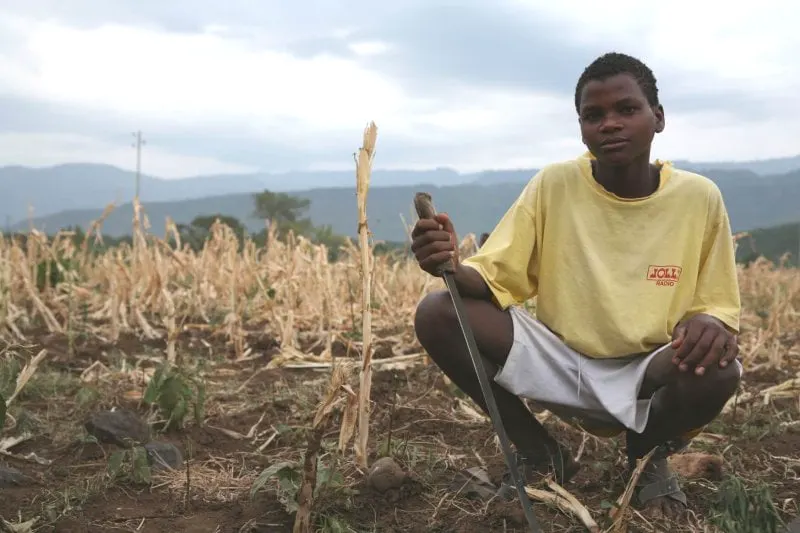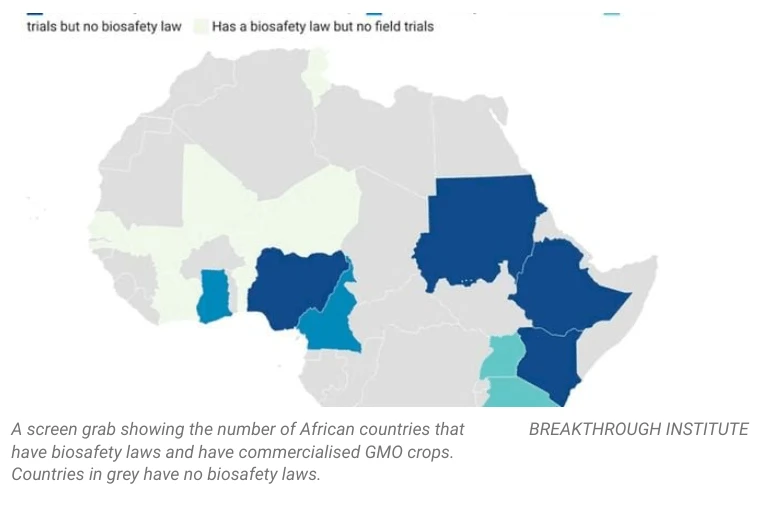South Africa has grown genetically modified corn for 27 years. Here’s what Kenya and the rest of Africa can learn from their experience
South Africa has grown genetically modified corn for 27 years. Here’s what Kenya and the rest of Africa can learn from their experience


South Africa was one of the last countries to gain independence, but it has some valuable insights into food security. It is the first country in Africa to pass legislation regulating the cultivation of Genetically Modified (GM) crops in 1997 with the Genetically Modified Organisms Act 15.
Almost three decades later, South Africans have been consuming GM maize and soy beans. Like Kenya, maize forms a considerable component of their daily food and animal feed.
Continuous research and development have seen the country develop genetically modified varieties that are not only resistant to the stalk borer, herbicides and the fall armyworm; but are also adapted to drought. An example of such a variety is the Water Efficient Maize for Africa, now known as TELA variety.
Only 13 per cent of South Africa’s surface area is arable. Thus, the adoption of farming technologies such as genetically modified organisms was out of necessity some 27 years ago in its quest to have sufficient food reserves for its population of nearly 60 million people. “South Africa has become food-secure because our farmers adopted technologies much earlier than the rest of Africa,” [says Dr Kingstone Mashingaidze, the principal researcher at the South Africa Agricultural Research Council (ARC).]
…
“African farmers and researchers should come together and we make our own seed. We are still depending on seed from overseas.”

This is an excerpt. Read the original post here

 | Videos | More... |

Video: Nuclear energy will destroy us? Global warming is an existential threat? Chemicals are massacring bees? Donate to the Green Industrial Complex!
 | Bees & Pollinators | More... |

GLP podcast: Science journalism is a mess. Here’s how to fix it

Mosquito massacre: Can we safely tackle malaria with a CRISPR gene drive?

Are we facing an ‘Insect Apocalypse’ caused by ‘intensive, industrial’ farming and agricultural chemicals? The media say yes; Science says ‘no’
 | Infographics | More... |

Infographic: Global regulatory and health research agencies on whether glyphosate causes cancer
 | GMO FAQs | More... |

Why is there controversy over GMO foods but not GMO drugs?

How are GMOs labeled around the world?

How does genetic engineering differ from conventional breeding?
 | GLP Profiles | More... |

Alex Jones: Right-wing conspiracy theorist stokes fear of GMOs, pesticides to sell ‘health supplements’




 Viewpoint — Fact checking MAHA mythmakers: How wellness influencers and RFK, Jr. undermine American science and health
Viewpoint — Fact checking MAHA mythmakers: How wellness influencers and RFK, Jr. undermine American science and health Viewpoint: Video — Big Solar is gobbling up productive agricultural land and hurting farmers yet providing little energy or sustainabilty gains
Viewpoint: Video — Big Solar is gobbling up productive agricultural land and hurting farmers yet providing little energy or sustainabilty gains Fighting deforestation with CO2: Biotechnology breakthrough creates sustainable palm oil alternative for cosmetics
Fighting deforestation with CO2: Biotechnology breakthrough creates sustainable palm oil alternative for cosmetics Trust issues: What happens when therapists use ChatGPT?
Trust issues: What happens when therapists use ChatGPT? 30-year-old tomato line shows genetic resistance to devastating virus
30-year-old tomato line shows genetic resistance to devastating virus California, Washington, Oregon forge immunization alliance to safeguard vaccine access against federal undermining
California, Washington, Oregon forge immunization alliance to safeguard vaccine access against federal undermining The free-range chicken dilemma: Better for birds, but with substantial costs
The free-range chicken dilemma: Better for birds, but with substantial costs ‘You have to treat the brain first’: Rethinking chronic pain with Sanjay Gupta
‘You have to treat the brain first’: Rethinking chronic pain with Sanjay Gupta
